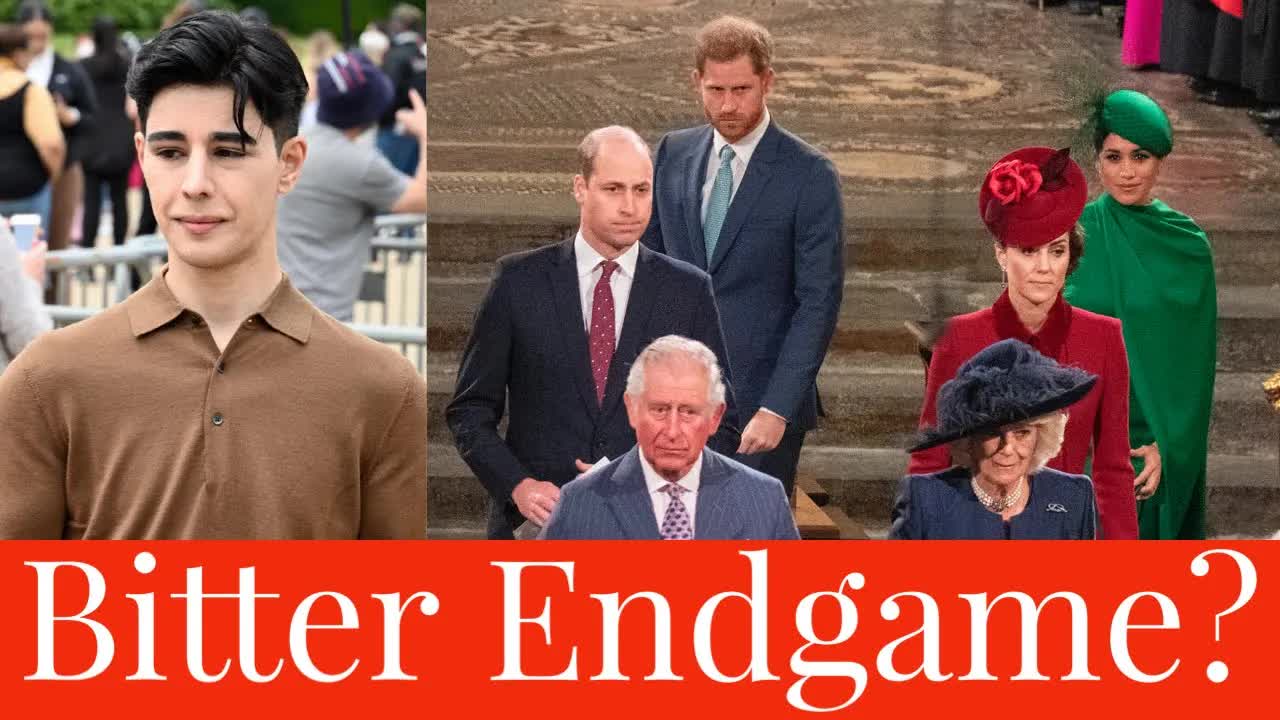The News
Omid Scobie’s New Book: A Royal Family Under Fire
In the latest chapter of royal commentary, Omid Scobie has stirred the pot with his new book, “Endgame.”
This follow-up to his previous work, “Finding Freedom,” paints a rather grim picture of the British monarchy.
According to Scobie, the royal family is on the brink of collapse, with Prince William portrayed as ruthless, King Charles deemed inefficient, and Queen Camilla characterized as cunning.
Meanwhile, he presents Prince Harry and Meghan Markle, now residing in the U.S., as paragons of virtue, seemingly untouched by the chaos that surrounds their former family.
Critics are quick to point out the glaring contradictions in Scobie's narrative.
While he lambasts the royals for their alleged failings, he conveniently ignores the controversies surrounding Harry and Meghan themselves.
It's almost comedic how some major media outlets continue to give Scobie a platform, seemingly unaware that he might be walking into a career-ending situation, much like the couple he closely aligns himself with.
His approach echoes Harry and Meghan's own tactics—playing the victim card while simultaneously dishing out criticism.
Scobie's claims of online bullying and emotional distress resonate with many, but they also raise eyebrows.
After all, he's not alone in facing criticism; it's part of the territory when one takes a public stance.
Ignoring the trolls and moving on is the advice many offer, yet Scobie seems to wallow in his grievances.
His attachment to Harry and Meghan, whose popularity has plummeted, may be dragging him down as well, yet he remains resolute in his defense of their actions.
The recent article in The Times of London reveals Scobie's biases, leaving readers questioning the authenticity of his claims.
He insists he has no direct ties to Meghan, despite having numerous mutual friends.
This kind of hedging only adds to the skepticism surrounding his motives.
If he truly seeks an objective viewpoint, why not just present the facts without the veneer of personal connections?
As Scobie details the alleged failings of the royal family, he inadvertently sets himself up for scrutiny.
His criticisms of Catherine, Princess of Wales, juxtaposed with praise for Meghan, illustrate a clear bias that undermines his credibility.
While he laments the treatment of Meghan, he fails to recognize the double standards in his assessments.
This selective criticism raises questions about his impartiality and whether he can genuinely offer a fair analysis of the monarchy's state.
The royal reporting community appears to have little love for Scobie, often mocking his assertions.
Other royal commentators have pointed out his limited access to the royal family, which diminishes his authority on the subject.
His reliance on sensationalism rather than solid journalism could backfire, especially as public interest in the royals shifts.
Scobie's portrayal of William as a schemer and Charles as a flawed leader is not entirely new.
However, the narrative that William is somehow responsible for Harry's mental health struggles feels misguided.
The reality is that Harry himself has openly discussed his challenges, making it hard to pin the blame solely on his brother.
Scobie's insistence on painting William as the villain comes off as desperate, especially when the evidence suggests otherwise.
Additionally, Scobie's critique of Camilla's opinions on modern issues like veganism and gender identity reflects a misunderstanding of public sentiment.
Not everyone is required to align with Meghan's views, and diversity of thought should be welcomed, not vilified.
Scobie's expectation that everyone must agree with Meghan's ideals is unrealistic and, frankly, a bit elitist.
As “Endgame” unfolds its narrative, it becomes clear that Scobie is keen on highlighting the monarchy's alleged decay.
Yet, he neglects to address the potential for a resurgence in interest, particularly with the younger generation of royals coming of age.
The future of the monarchy could very well hinge on the next generation, which Scobie seems to overlook in his doomsday predictions.
The book also hints at a growing rift between King Charles and Prince William, suggesting that their relationship is strained.
However, many analysts argue that their bond has strengthened, especially in light of Harry's departure from royal duties.
Scobie's interpretation may reflect his own biases rather than the reality of their dynamic, which appears more collaborative than competitive.
While Scobie insists that the monarchy could face significant challenges, it's essential to remember that royal families have weathered storms before.
The British monarchy has a long history of adaptation and resilience, and dismissing it as a mere tourist attraction seems shortsighted.
In the end, Scobie's attempts to frame himself as the voice of reason in this royal drama may ultimately backfire.
His connections to Harry and Meghan, coupled with his apparent disregard for balanced reporting, could leave him isolated in a world that thrives on nuance and complexity.
Whether “Endgame” will be seen as a pivotal moment in royal literature or simply another sensationalized account remains to be seen.
As the saga continues, one thing is clear: the fascination with the British royal family—and the chaos that often surrounds it—shows no signs of waning.






























































